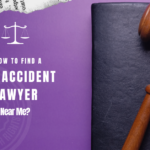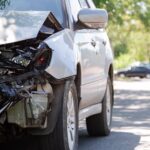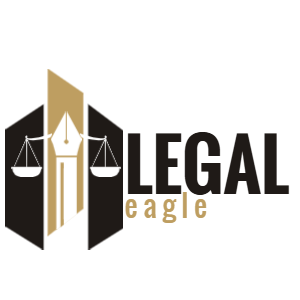Car Accident Lawyers Near Me Savannah GA Get the Legal Help You Need
Car accident lawyers near me savannah ga – Navigating the aftermath of a car accident can be overwhelming, especially in a bustling city like Savannah, Georgia. From dealing with insurance companies to understanding complex legal procedures, the process can feel daunting. This is where the expertise of a skilled car accident lawyer becomes invaluable. These legal professionals possess the knowledge and experience to guide you through the intricacies of your case, ensuring your rights are protected and you receive the compensation you deserve.
In Savannah, Georgia, car accidents are unfortunately a common occurrence. The city’s busy streets, diverse traffic patterns, and potential for distracted driving create a challenging environment for motorists. Whether you’ve been involved in a minor fender bender or a serious collision, seeking legal counsel from a car accident lawyer in Savannah can provide you with the peace of mind and support you need to move forward.
The Importance of Choosing the Right Car Accident Lawyer
After a car accident, it’s understandable to feel overwhelmed and unsure of what steps to take. You may be dealing with injuries, vehicle damage, and the stress of navigating the insurance process. This is where hiring a car accident lawyer becomes crucial. A skilled lawyer can help you navigate the legal complexities of your case, ensuring you receive the compensation you deserve.
The Legal Complexities of Car Accident Cases
Car accident cases often involve intricate legal issues that can be challenging to understand without professional guidance. For example, determining fault for the accident can be complex, especially if multiple vehicles are involved. Insurance policies and coverage limits can also be confusing, and negotiating with insurance companies can be a daunting task. Furthermore, understanding the statutes of limitations for filing a claim is crucial to protect your rights.
The Benefits of Having an Experienced Car Accident Lawyer on Your Side
- Expert Legal Knowledge: A car accident lawyer possesses extensive knowledge of traffic laws, insurance regulations, and personal injury litigation. They can effectively assess your case, identify all potential claims, and advocate for your best interests.
- Negotiation Skills: Insurance companies often prioritize their own profits, and they may attempt to undervalue your claim or deny it altogether. An experienced lawyer can skillfully negotiate with insurance adjusters to ensure you receive fair compensation for your losses.
- Courtroom Experience: If your case proceeds to trial, a skilled lawyer can effectively present your case to a jury, ensuring your rights are protected and you receive a favorable outcome.
- Case Management: A car accident lawyer will handle all aspects of your case, including gathering evidence, filing paperwork, and communicating with all parties involved. This frees you to focus on your recovery and other important matters.
Understanding Car Accident Laws in Savannah, GA
Navigating the legal landscape after a car accident can be overwhelming, especially when you’re dealing with injuries and property damage. Understanding the specific laws in Savannah, GA, is crucial to protecting your rights and seeking fair compensation. This section will delve into the key traffic laws, the legal principles governing negligence and liability, and common accident scenarios in Savannah.
Traffic Laws and Regulations
Savannah, GA, adheres to the Georgia Department of Transportation (GDOT) traffic laws and regulations. These laws are designed to ensure safe driving practices and protect all road users. Key traffic laws include:
- Speed limits: Savannah has varying speed limits depending on the type of road and location. It’s crucial to adhere to posted speed limits to avoid traffic violations and potential accidents.
- Right-of-way: Understanding right-of-way rules is critical. For example, vehicles entering a roadway from a private driveway must yield to traffic already on the road. Pedestrians also have the right-of-way at crosswalks.
- Traffic signals: Adhering to traffic signals, such as red lights, stop signs, and traffic lights, is essential. Running a red light or failing to stop at a stop sign can lead to severe consequences.
- Driving under the influence (DUI): Georgia has strict DUI laws, and driving under the influence of alcohol or drugs is illegal. It’s crucial to avoid driving after consuming alcohol or using drugs, as this can lead to serious accidents and legal penalties.
- Seatbelt laws: All passengers and drivers are required to wear seatbelts in Georgia. Failure to wear a seatbelt can result in fines and penalties, even if you’re not involved in an accident.
- Distracted driving: Using a mobile phone while driving, texting, or engaging in other distracting activities is illegal in Georgia. Distracted driving is a major cause of accidents, so it’s essential to focus on the road.
Negligence and Liability in Car Accidents
In Georgia, car accidents are typically governed by the principle of negligence. Negligence occurs when a person’s actions or inaction fall below the standard of care expected of a reasonable person, resulting in harm to another. To prove negligence in a car accident case, you need to demonstrate the following:
- Duty of Care: The driver involved in the accident owed a duty of care to other road users, including pedestrians.
- Breach of Duty: The driver violated this duty of care by acting negligently, such as speeding, running a red light, or driving under the influence.
- Causation: The driver’s negligence directly caused the accident.
- Damages: The accident resulted in damages, such as injuries, property damage, or other losses.
Common Accident Scenarios in Savannah, GA
Savannah, like any other city, experiences various types of car accidents. Some common scenarios include:
- Rear-end collisions: These accidents occur when a vehicle crashes into the rear of another vehicle, often due to tailgating, inattentive driving, or sudden braking.
- Intersection accidents: Accidents at intersections are frequent, often caused by drivers running red lights, failing to yield the right of way, or making unsafe turns.
- Side-impact collisions: These accidents happen when two vehicles collide at an angle, typically at intersections or when changing lanes.
- Pedestrian accidents: Savannah is a pedestrian-friendly city, but accidents involving pedestrians can occur due to driver negligence, distracted walking, or inadequate street lighting.
- Single-vehicle accidents: These accidents can happen due to various factors, including speeding, loss of control, and adverse weather conditions.
Identifying Potential Legal Claims After a Car Accident
After a car accident, you may have legal claims against the at-fault driver or other parties involved. Understanding the types of claims you may have and the process of establishing liability is crucial to seeking fair compensation for your injuries and losses.
Types of Legal Claims, Car accident lawyers near me savannah ga
Identifying the specific legal claims you have will depend on the circumstances of your accident. However, some common types of claims include:
- Negligence: This is the most common type of claim in car accident cases. It involves proving that the other driver’s carelessness or recklessness caused your injuries.
- Strict Liability: This applies in cases involving defective vehicle parts or products. You may have a claim against the manufacturer if a defective part caused the accident.
- Wrongful Death: If the accident resulted in a fatality, the surviving family members may have a wrongful death claim against the at-fault party.
Establishing Fault and Liability
In a car accident case, the burden of proof lies with the injured party to demonstrate that the other driver was at fault. This involves proving the following:
- Duty of Care: The other driver had a legal duty to act with reasonable care while operating their vehicle.
- Breach of Duty: The other driver breached their duty of care by acting negligently, such as speeding, driving under the influence, or failing to obey traffic signals.
- Causation: The other driver’s negligence directly caused the accident and your injuries.
- Damages: You suffered actual damages as a result of the accident, such as medical expenses, lost wages, and pain and suffering.
Types of Damages
If you are successful in proving liability, you may be entitled to recover various types of damages, including:
- Economic Damages: These are quantifiable financial losses, such as medical expenses, lost wages, property damage, and rehabilitation costs.
- Non-Economic Damages: These are subjective losses that are harder to quantify, such as pain and suffering, emotional distress, loss of consortium, and disfigurement.
- Punitive Damages: These are awarded in rare cases where the defendant’s conduct was particularly egregious and intended to punish the wrongdoer and deter future misconduct.
It is important to note that the specific types of damages available will vary depending on the facts of your case and the applicable laws in Georgia.
Finding the Best Car Accident Lawyers in Savannah, GA
Navigating the legal system after a car accident can be overwhelming. It’s crucial to have a skilled and experienced car accident lawyer by your side. This section will guide you through the process of finding the best legal representation in Savannah, GA.
Criteria for Selecting a Car Accident Lawyer
Choosing the right car accident lawyer is essential for maximizing your chances of a successful outcome. Consider these key criteria:
- Experience and Expertise: Look for lawyers specializing in car accident cases and have a proven track record of success. Experience handling similar cases ensures they understand the complexities of car accident law and know how to navigate the legal system effectively.
- Reputation and Reviews: Research the lawyer’s reputation by reading online reviews and testimonials from past clients. A good reputation indicates a lawyer’s competence, professionalism, and commitment to client satisfaction.
- Communication and Accessibility: Choose a lawyer who communicates clearly and promptly, keeping you informed throughout the process. You should be able to reach them easily and have your questions answered promptly.
- Fees and Payment Structure: Understand the lawyer’s fee structure and payment options. Many car accident lawyers work on a contingency fee basis, meaning they only get paid if they win your case.
- Personal Connection: It’s important to feel comfortable and confident in your lawyer. Choose someone you can trust and who understands your needs and goals.
Tips for Finding Reputable Lawyers in Savannah, GA
Here are some tips for finding reputable and experienced car accident lawyers in Savannah, GA:
- Ask for Referrals: Talk to friends, family, or colleagues who have been involved in car accidents. Their recommendations can be valuable in finding a trusted lawyer.
- Consult Online Directories: Websites like Avvo, FindLaw, and the Georgia Bar Association’s website provide listings of lawyers in your area, along with their credentials and client reviews.
- Attend Local Events: Attend community events or seminars related to personal injury law. This can provide opportunities to meet lawyers and learn about their expertise.
- Contact the Savannah Bar Association: The Savannah Bar Association can provide referrals to lawyers in your area. They can also offer information on legal resources and support services.
Checking Lawyer Credentials and Reviews
Verifying a lawyer’s credentials and reviewing their track record is crucial before hiring them.
- Verify Bar Membership: Ensure the lawyer is licensed to practice law in Georgia by checking their membership status with the State Bar of Georgia. You can access the Georgia Bar’s website to verify this information.
- Review Online Reviews: Look for reviews on websites like Avvo, Google My Business, and Yelp. These reviews can provide insights into a lawyer’s reputation, communication style, and overall client experience.
- Check Case Results: While not always readily available, try to find information about the lawyer’s past case results. This can give you an idea of their success rate and experience in handling similar cases.
The Role of a Car Accident Lawyer in Negotiations and Settlements
After a car accident, dealing with insurance companies can be a complex and stressful process. A car accident lawyer plays a crucial role in navigating this process, advocating for your rights, and ensuring you receive fair compensation for your injuries and losses.
Negotiating with Insurance Companies
A car accident lawyer acts as your intermediary in negotiating with insurance companies. They understand the intricacies of insurance policies and legal procedures, allowing them to effectively communicate your needs and protect your interests.
Negotiation Strategies
Insurance companies are often motivated to settle cases quickly and for the lowest amount possible. Car accident lawyers employ various strategies to achieve a favorable settlement for their clients:
- Understanding Policy Coverage: Your lawyer will carefully review your insurance policy and the other driver’s policy to determine the available coverage and potential compensation. They can identify any loopholes or exclusions that may limit your claim.
- Building a Strong Case: A strong case is built on evidence. Your lawyer will gather all necessary documentation, including medical records, police reports, witness statements, and photographs of the accident scene. This evidence will be used to support your claim and demonstrate the severity of your injuries and losses.
- Negotiating with the Insurance Adjuster: Your lawyer will handle all communication with the insurance adjuster, protecting you from potentially misleading or unfair tactics. They will negotiate on your behalf, advocating for a settlement that fully compensates you for your medical expenses, lost wages, pain and suffering, and other damages.
- Threat of Litigation: In some cases, a lawyer may need to threaten litigation to motivate the insurance company to negotiate fairly. This demonstrates your lawyer’s commitment to fighting for your rights and can often lead to a more favorable settlement.
Common Settlement Strategies
Here are some examples of common settlement strategies used by car accident lawyers:
- Structured Settlements: These settlements involve receiving periodic payments over a specific period. This can be beneficial for long-term care or ongoing medical expenses. A lawyer can help negotiate the terms of a structured settlement to ensure you receive the necessary financial support.
- Lump Sum Settlements: A lump sum settlement involves receiving a single payment for all your damages. This can be advantageous if you need immediate access to funds for medical bills or other expenses. Your lawyer will ensure that the lump sum payment is sufficient to cover all your current and future costs.
- Negotiating a Higher Settlement: Your lawyer will leverage their knowledge and experience to negotiate a higher settlement than you might be able to achieve on your own. They will consider factors such as the severity of your injuries, the extent of your losses, and the insurance company’s liability to maximize your compensation.
Navigating the Legal Process After a Car Accident: Car Accident Lawyers Near Me Savannah Ga
After a car accident, navigating the legal process can feel overwhelming. However, understanding the steps involved can empower you to protect your rights and seek fair compensation.
The Steps Involved in Filing a Car Accident Claim
Filing a car accident claim involves a series of steps designed to gather evidence, establish liability, and negotiate a settlement. The process begins with reporting the accident to the authorities and your insurance company.
- Report the Accident: Immediately after the accident, contact the police to report the incident. Obtain a copy of the police report, which will serve as an official record of the accident.
- Contact Your Insurance Company: Notify your insurance company about the accident, providing details of the incident and any injuries sustained. This will initiate the claims process.
- Gather Evidence: Collect any evidence that can support your claim. This includes taking photographs of the accident scene, the damaged vehicles, and any injuries.
- Seek Medical Attention: If you have sustained injuries, seek immediate medical attention. Document all medical treatments, diagnoses, and prognoses.
- Negotiate with the Insurance Company: Your insurance company will review your claim and may offer a settlement. If you are dissatisfied with the offer, your lawyer can negotiate a more favorable settlement.
- File a Lawsuit: If negotiations fail, you may need to file a lawsuit to pursue your claim. Your lawyer will guide you through this process.
The Role of Evidence and Documentation in Car Accident Cases
Evidence plays a crucial role in establishing liability and damages in car accident cases. It helps to prove who was at fault and the extent of your injuries and losses.
- Police Report: The police report is a key piece of evidence, providing an official account of the accident, including details of the parties involved, the location, and the cause of the accident.
- Photographs and Videos: Photographs of the accident scene, the damaged vehicles, and any injuries can help to visualize the incident and support your claim.
- Medical Records: Medical records document your injuries, treatments, and prognoses. These records are essential for establishing the extent of your damages.
- Witness Statements: Statements from witnesses who saw the accident can provide valuable insights into the events leading up to the collision.
- Vehicle Maintenance Records: Records of vehicle maintenance can help to demonstrate that the vehicle was in good working order before the accident, potentially ruling out mechanical failure as a contributing factor.
The Different Stages of Litigation in Car Accident Lawsuits
If a settlement cannot be reached, a car accident case may proceed to litigation. Litigation involves a series of formal legal steps, culminating in a trial if necessary.
- Pleadings: The initial stage of litigation involves the filing of formal documents, known as pleadings, that Artikel the legal claims and defenses of each party.
- Discovery: During discovery, both parties gather information and evidence from each other through interrogatories, depositions, and document requests.
- Motion Practice: Parties may file motions to dismiss the case, for summary judgment, or for other relief.
- Trial: If the case is not resolved through settlement or motions, it will proceed to trial. At trial, each party presents evidence and witnesses to support their case.
- Judgment: After the trial, the judge or jury will issue a judgment, determining liability and damages.
- Appeal: Either party may appeal the judgment if they believe there were errors in the trial proceedings.
Common Mistakes to Avoid After a Car Accident
Making mistakes after a car accident can negatively impact your legal claim and your chances of receiving fair compensation. Understanding these common pitfalls and taking proactive steps to avoid them can significantly benefit your case.
Failing to Document the Accident
It is crucial to document the accident thoroughly and immediately. This includes gathering evidence like photos, videos, and witness contact information.
- Take pictures of the damage to your vehicle, the other vehicles involved, and the accident scene.
- Capture any injuries you sustained, including visible wounds, bruises, and pain points.
- Record the names, addresses, and contact information of all drivers involved, passengers, and witnesses.
- If possible, note the weather conditions, road conditions, and any traffic signals or signs.
Failing to document the accident can weaken your claim, as it might be difficult to prove the extent of your injuries and damages later.
Understanding Insurance Coverage and Claims
Navigating the complexities of insurance coverage after a car accident can be daunting. Understanding the different types of insurance and the process of filing a claim is crucial for maximizing your benefits and ensuring a smooth recovery.
Types of Insurance Coverage
Understanding the various types of insurance coverage relevant to car accidents is essential for navigating the claims process. These coverages can protect you financially and help you recover from injuries and damages.
- Liability Coverage: This is the most common type of car insurance, providing financial protection to others if you cause an accident. It covers damages to other vehicles and injuries to other individuals.
- Collision Coverage: This coverage pays for repairs or replacement of your vehicle if it is involved in an accident, regardless of fault.
- Comprehensive Coverage: This coverage protects your vehicle from damages caused by non-collision events, such as theft, vandalism, or natural disasters.
- Personal Injury Protection (PIP): This coverage, also known as “no-fault” insurance, pays for your medical expenses and lost wages after an accident, regardless of fault.
- Uninsured/Underinsured Motorist Coverage: This coverage protects you if you are involved in an accident with a driver who does not have insurance or has insufficient coverage.
Filing an Insurance Claim
Following a car accident, it is crucial to promptly file an insurance claim to initiate the process of receiving compensation for your losses.
- Contact Your Insurance Company: Notify your insurance company about the accident as soon as possible. They will provide you with instructions on how to file a claim.
- Gather Information: Collect all relevant information about the accident, including police reports, witness statements, and photographs of the damage.
- Submit the Claim: Complete the necessary forms and submit them to your insurance company along with supporting documentation.
- Follow Up: Regularly check the status of your claim and communicate with your insurance company to ensure a timely resolution.
Maximizing Insurance Benefits
To maximize your insurance benefits, it is important to be proactive and knowledgeable about your rights and options.
- Seek Medical Attention: Even if you feel fine, it is crucial to seek medical attention promptly to document any injuries.
- Document Your Losses: Keep track of all expenses related to the accident, including medical bills, lost wages, and property damage.
- Negotiate with the Insurance Company: Do not hesitate to negotiate with the insurance company to ensure you receive fair compensation for your losses.
- Consider Legal Representation: If you encounter difficulties in dealing with the insurance company, it is advisable to consult with a car accident lawyer who can advocate for your rights.
The Impact of Car Accidents on Individuals and Families
Car accidents can have devastating and long-lasting consequences for individuals and their families. The physical, emotional, and financial burdens of such incidents can be overwhelming, leaving victims struggling to cope with the aftermath. This section will explore the various ways car accidents impact individuals and families, highlighting the challenges they face and the support services available to help them navigate this difficult time.
Physical Consequences
The immediate physical consequences of a car accident can range from minor injuries like whiplash and bruises to severe and life-altering injuries such as broken bones, spinal cord damage, and traumatic brain injury. These injuries can require extensive medical treatment, including hospitalization, surgeries, and rehabilitation, leading to prolonged pain, discomfort, and disability. In some cases, individuals may face permanent physical limitations, affecting their ability to work, perform daily tasks, and enjoy their quality of life.
Emotional Consequences
Car accidents can also have a profound impact on an individual’s emotional well-being. The trauma of the accident, fear of future incidents, and the pain and suffering associated with injuries can lead to anxiety, depression, post-traumatic stress disorder (PTSD), and other mental health challenges. These emotional consequences can significantly affect relationships, work performance, and overall quality of life.
Financial Consequences
The financial impact of a car accident can be substantial and long-lasting. Medical expenses, lost wages, property damage, and legal fees can create a significant financial strain on individuals and families. The loss of income due to injury or disability can make it difficult to meet financial obligations, leading to debt, financial instability, and even bankruptcy.
Long-Term Impact
The long-term impact of a car accident can be multifaceted and challenging. Individuals may face ongoing physical limitations, chronic pain, and emotional distress, requiring ongoing medical care and support. The financial burden of medical expenses and lost income can continue to affect their financial stability, making it difficult to plan for the future. In some cases, car accidents can lead to changes in lifestyle, career paths, and relationships, significantly altering the course of their lives.
Resources and Support Services
For victims of car accidents, various resources and support services are available to help them cope with the physical, emotional, and financial consequences of their injuries. These services include:
- Medical care and rehabilitation
- Mental health counseling and support groups
- Financial assistance programs
- Legal aid and advocacy
- Support organizations for victims of car accidents
It is crucial for individuals and families to seek out these resources and support services to navigate the challenges they face after a car accident.
In the wake of a car accident, it’s crucial to understand your rights and options. A skilled car accident lawyer near me savannah ga can act as your advocate, ensuring your interests are prioritized throughout the legal process. From negotiating with insurance companies to pursuing legal action if necessary, they will strive to achieve the best possible outcome for your case. Remember, navigating the complexities of a car accident claim alone can be challenging, but with the right legal representation, you can regain control and focus on your recovery.
If you’ve been in a car accident in Savannah, GA, it’s important to have legal representation on your side. Finding the right car accident lawyer can make a big difference in the outcome of your case. You might want to start by looking for top car accident lawyers near me to get an idea of what’s available in your area.
Once you’ve narrowed down your options, you can then focus on finding the best car accident lawyer in Savannah, GA, to represent your interests.
Finding a skilled car accident lawyer near you in Savannah, GA can be crucial after an accident. These legal professionals can help navigate the complexities of insurance claims and ensure you receive fair compensation for your injuries and damages. If you’re in the Atlanta area, you can find experienced legal representation through resources like car accident lawyers near me atlanta ga.
No matter where you are in Georgia, seeking legal advice after a car accident is a wise step towards protecting your rights and achieving a favorable outcome.
If you’ve been in a car accident in Savannah, GA, you need to find a lawyer who can help you navigate the legal complexities and fight for your rights. While Savannah and Tulsa are quite different, the principles of seeking legal help after a car accident remain the same. For those in Tulsa, tulsa car accident lawyers near me can help you understand your options.
No matter where you are, a skilled car accident lawyer can make a significant difference in the outcome of your case.





